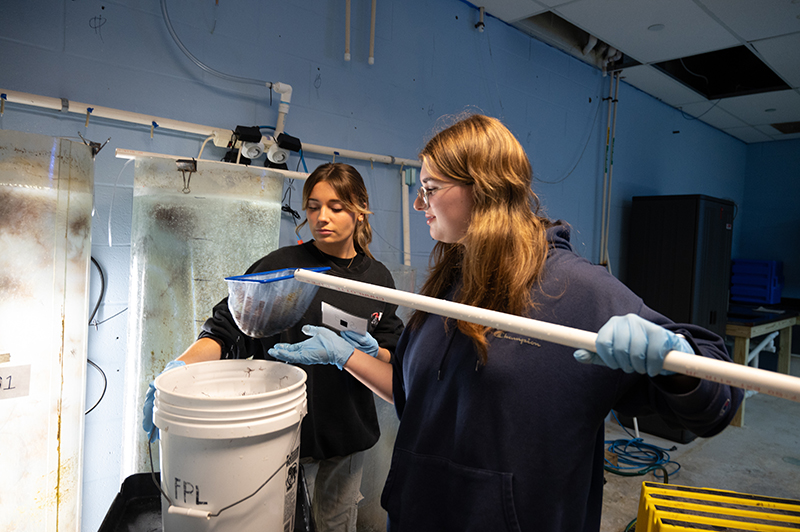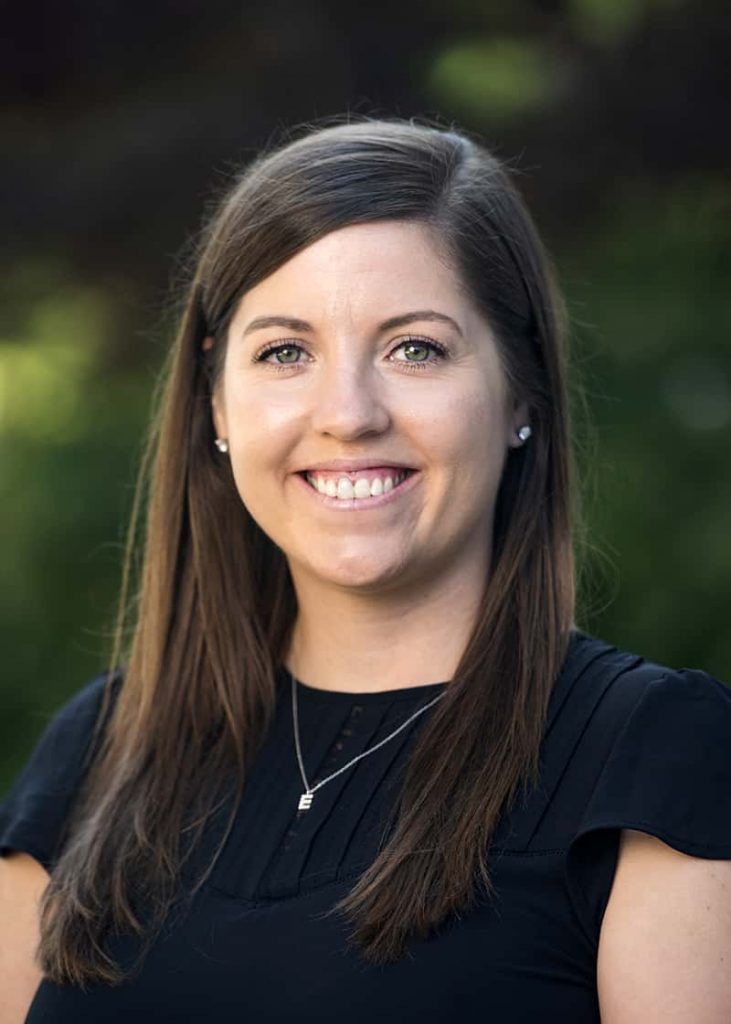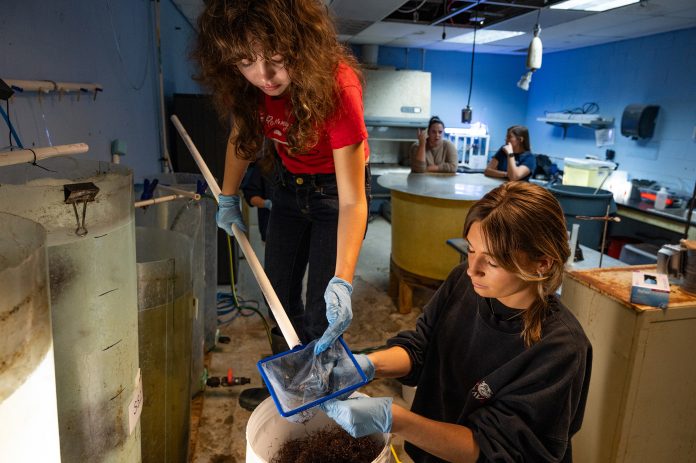Connecticut’s growing aquaculture industry is catching the wind in its sails and getting some navigational assistance from Southern Connecticut State University’s Emma Cross. As part of a team that received a nearly $400,000 grant this year, Cross, an assistant professor in the Department of the Environment, Geography and Marine Sciences, is helping to design pathways to education for high school students interested in aquaculture, including students at the state’s three magnet high schools for marine studies.
Aquaculture — the underwater equivalent of agriculture — comprises the farming and harvesting of fin fish such as salmon or cod, shellfish like oysters or mussels, and algae such as kelp. The grant, administered by Connecticut Sea Grant, is one of 10 grants totaling than $3 million awarded by the National Oceanic and Atmospheric Administration’s Sea Grant for workforce development and support.
Cross was already working with New Haven’s Sound School and now adds Groton’s Marine Science Magnet School and Bridgeport’s Regional Aquaculture Science and Technology Education Center to the fold. While the popularity of the marine science magnet schools is clear, it is also evident that high school graduates tend to leave Connecticut to study marine sciences and often don’t return.
“We’re very much at the beginning,” Cross says, but the goal of the grant is “to try to retain them for their university career and to stay and work in Connecticut.”
Cross is working to create curriculum for Early College Experience classes that can be taught at the magnet schools by qualified instructors and allow high school students to earn college credits at little or no cost. She is also working to expand the college-level offerings around aquaculture at Southern.

There was already a connection between the university and the Sound School, where undergraduate students are helping to culture seaweed in a lab at the high school while high school students engage in college-level research opportunities through the Werth Center for Coastal and Marine Studies. Currently, students at both schools are studying a warm water species of kelp, Gracilaria tikvahiae. They are considering the viability and economic feasibility of farming this species, which can be used as a food thickener, as climate change leads to rising water temperatures in Long Island Sound and around the world.

Cross will draw on her own experience as an aquaculture researcher to craft the curriculum. In addition to the work at Sound School, Cross has consulted on kelp farming in Long Island Sound and shellfish farming off Martha’s Vineyard. She recently returned from a research expedition to Iceland where several SCSU graduate and undergraduate students accompanied her, thanks to a Creative Activity and Student Engagement grant from the dean of Arts & Sciences.
In Iceland, Southern has been given a rare opportunity to conduct baseline research at the proposed site of a new fin fish farm. Development of the proposed farm has been delayed by local opposition, allowing time for researchers to gather data on water quality and biodiversity in the Seydis Fjordur in east Iceland. The two-week trip was part of an expanded study abroad opportunity offered by the Department of the Environment, Geography and Marine Studies, exploring the relationship between economy and the environment.

It is rare, Cross says, to have the chance to gather baseline data before a fish farm is created.
Should the farm be developed, researchers will then be able to continue to track changes in water quality — temperature, salinity, pH and oxygen levels, and stability (clarity of water) — to monitor its environmental impact.
“It’s a great thing for students to see firsthand the different aquaculture possibilities,” Cross says. “My students want to have an impact that benefits the environment. We want to understand how aquaculture is impacting the environment and balance that with how to feed our ever-growing human population. It’s really important for students to think about these topical issues. The research is needed for companies to be responsible.”
Throughout the Iceland trip, students were directly involved in the fieldwork, including Go-Pro camera data collection at different depths, plankton tows to gather tiny organisms, and environmental DNA (EDNA) meta barcoding to determine what organisms have been in the field of study recently.
Students are learning the research skills they will need to join the workforce and grow the aquaculture industry responsibly. With the CT Sea Grant to develop curriculum, Cross hopes to open those opportunities up to more young people interested in aquaculture and encourage them to stay in Connecticut.



